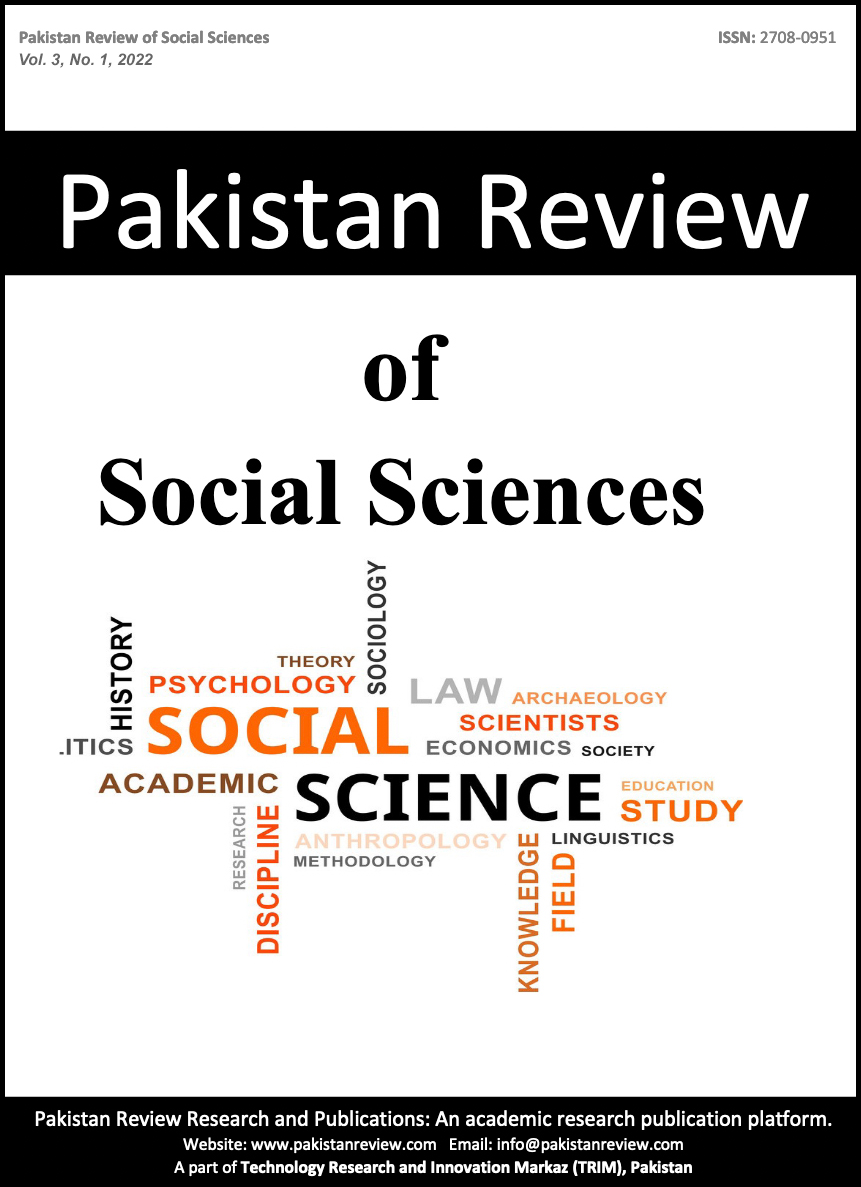DOMESTIC VIOLENCE DURING COVID-19: A CASE STUDY OF LAHORE
Keywords:
COVID-19, isolation, brutality, Intimate Partner Violence, maltreatmentAbstract
Domestic violence and spousal abuse is increased in Pakistan due to COVID-19 lockdowns, people lost their jobs, meltdown in economy and men worked from home. This research report focused on “Domestic Violence during COVID-19: A Case Study of Lahore”. This study highlighted that the coronavirus pandemic has deepened social inequalities in Pakistan, impacted women and children and increased the gap between men and women. This study points out that women working in informal sectors and those sitting in their houses both are affected by pandemic, many women lost their jobs and were confined to stay at home, where they can’t protect themselves from domestic abuse. Qualitative and cross-sectional research method has been used to carry out this research. It was noted that stress and anxiety increased as a result of being confined to one’s place of residency away from friends, family and workplace. Also, literacy rate, unemployment and decrease in reporting these issues to police contributed a lot increasing domestic violence. It was noted that threat from the abusers of being killed, social stigma and honor prevented women to report the cases of domestic violence which tortured women mentally, physically and emotionally. It made it clear that pandemics like COVID-19 can exacerbate the dimensions of gender equality, increasing the gap between men and women in formal and informal sectors. Hence, the prevention of domestic abuse is not only crucial from human rights perspective but can be fruitful to bring changes in the mental health and economic development of our society. Effective working of our state departments, strict laws and regulations against violence, education and awareness can bring prevention policies against domestic violence.
Downloads
Published
Issue
Section
License
Copyright (c) 2024 Hareem Fatima

This work is licensed under a Creative Commons Attribution 4.0 International License.
Submission declaration
Authors retain the copyright to their work and grant the Pakistan Review of Social Sciences (PRSS) the right of first publication under a Creative Commons Attribution 4.0 International (CC BY 4.0) license. This license allows others to share, adapt, and reuse the work for any purpose, including commercial use, as long as appropriate credit is given to the original authors and the journal.
By submitting a manuscript, authors confirm that the work has not been published previously (except as an abstract, lecture, or academic thesis), is not under review elsewhere, and has been approved by all authors and relevant authorities. Once accepted, the article will be openly accessible under the CC BY 4.0 license, ensuring wide dissemination and reuse with proper attribution.






